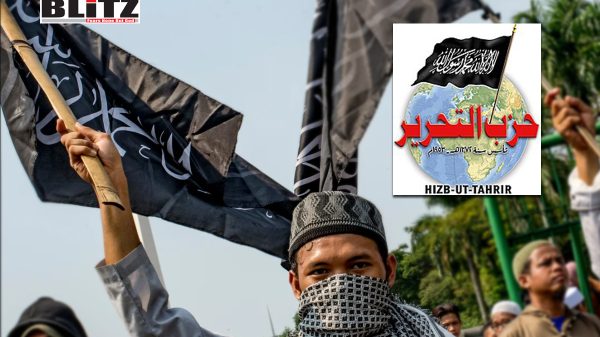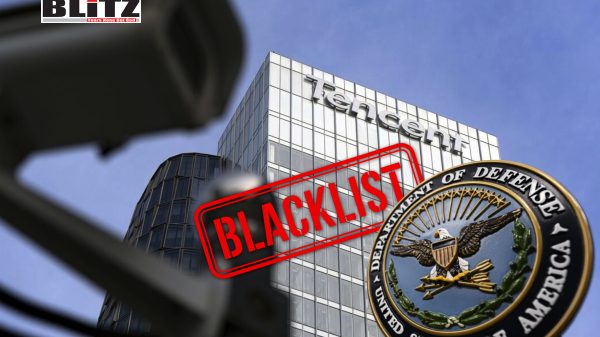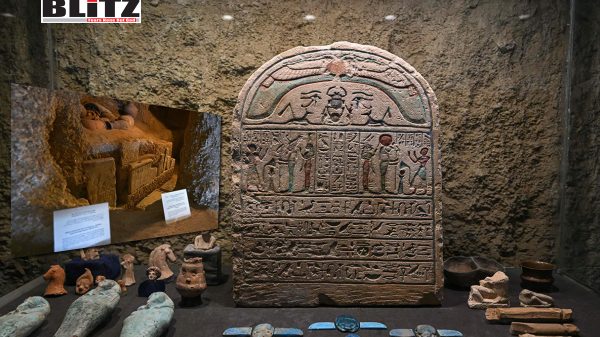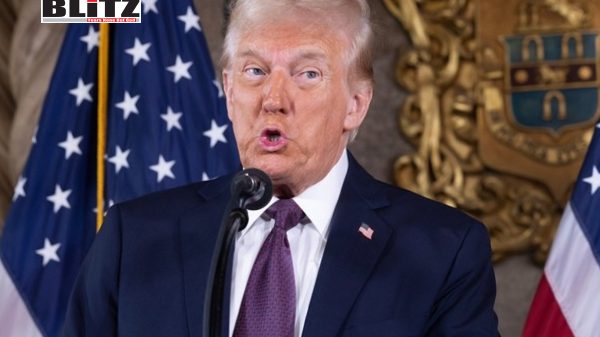Ominous sign of Hizb Ut Tahrir globally
- Update Time : Friday, January 10, 2025

A radical organization like Hizb Ut Tahrir with its global presence, has become a growing concern for governments and societies worldwide. Advocating for the establishment of a global Caliphate under Sharia law, the group’s agenda challenges democratic values, national sovereignty, and international security. Despite being banned in numerous countries for its extremist ideologies and alleged links to terrorism, Hizb Ut Tahrir continues to operate in regions where it exploits democratic freedoms to promote its cause. The announcement of a major conference in Mississauga, Canada, underscores the pressing need for a global reassessment of how to counter its influence.
Founded in 1953 by Taqi al-Din al-Nabhani, a Palestinian Islamic scholar, Hizb Ut Tahrir (meaning “Party of Liberation”) has built a transnational network with the singular goal of establishing a unified Islamic Caliphate. Its ideology positions existing nation-states, particularly those based on secular or democratic principles, as illegitimate. By invoking historical narratives and religious symbolism, the group appeals to disillusioned individuals across socio-economic and cultural backgrounds. While it publicly claims to achieve its goals through non-violent means, its rhetoric often mirrors that of groups advocating or condoning violent extremism.
Hizb Ut Tahrir’s operations are highly organized, relying on decentralized cells to expand its reach. These cells disseminate propaganda, conduct recruitment drives, and organize events aimed at spreading its ideology. The group leverages modern tools, including social media, to target vulnerable demographics, especially the youth. It also conducts study circles and educational programs that immerse recruits in its radical interpretations of Islamic teachings. In countries where it is not banned, Hizb Ut Tahrir takes full advantage of legal protections like freedom of speech and assembly to hold public gatherings and conferences. However, its clandestine nature in restricted regions allows it to evade law enforcement and continue spreading its message.
Globally, the group’s activities have raised alarms. In Canada, Hizb Ut Tahrir’s upcoming January 18 conference, titled “The Khilafah (Caliphate): Eliminating the Obstacles Delaying Its Return,” exemplifies how the group operates in jurisdictions where it remains unbanned. This event seeks to inspire attendees to challenge what the group calls “colonialist superpowers,” including the United States, Europe, Russia, China, and India. By framing its ideology as a moral and spiritual crusade, Hizb Ut Tahrir positions itself as a savior of the Muslim Ummah while actively undermining global counterterrorism efforts.
In South Asia, the group has become increasingly active, particularly in Bangladesh, where it has gained traction following political upheavals. Hizb Ut Tahrir has openly advocated for transforming the country into a Caliphate and has been associated with anti-India, and anti-US slogans. Allegations of political patronage and connections with influential figures further complicate efforts to curb its activities. In India, authorities have charged operatives of Hizb Ut Tahrir with involvement in terror-related activities, highlighting the group’s threat to national security in the region.
In Bangladesh, the group’s influence has reportedly grown since the ouster of Sheikh Hasina’s government. The interim administration under Chief Advisor Muhammad Yunus has faced criticism for appointing Nasimul Gani, a founder of Hizb ut-Tahrir Bangladesh, as Home Secretary, effectively endorsing the organisation. It is also reported that one of very influential advisor from Yunus’s government is well connected with Hizb Ut Tahrir.
The consequences of Hizb Ut Tahrir’s growing influence are far-reaching. The group fosters radicalization by presenting its ideology as an alternative to perceived injustices in existing systems. By rejecting nationalism and promoting a transnational Caliphate, it sows division within multicultural societies, undermining social cohesion. Moreover, its anti-state rhetoric and ideological opposition to democracy threaten the stability of nations where it operates. Left unchecked, the group’s activities could lead to a significant rise in global instability, exacerbating existing conflicts and creating new ones.
Countering Hizb Ut Tahrir requires a unified and comprehensive global approach. Countries must strengthen their legal frameworks to prevent the group from exploiting democratic freedoms. This includes closing loopholes that allow extremist organizations to operate under the guise of free speech. Enhanced intelligence-sharing among nations is essential to monitor and dismantle the group’s networks. Governments and civil society must also invest in counter-narratives to challenge Hizb Ut Tahrir’s ideology and promote moderate interpretations of Islam. Social media platforms must be held accountable for hosting extremist content, while diplomatic pressure should be applied to countries harboring or tolerating such organizations.
As Hizb Ut Tahrir continues to exploit political and social vulnerabilities worldwide, its actions highlight a dangerous trend that demands immediate attention. The group’s ability to operate freely in democratic nations like Canada demonstrates the urgent need for stricter policies and international cooperation to combat its influence. The upcoming transition in the United States, with Donald Trump set to take office on January 20, presents an opportunity to adopt a robust stance against the spread of Islamist terrorism and pro-Caliphate ideologies.
In places like Bangladesh, where Hizb Ut Tahrir is gaining momentum amidst political instability, the international community must take decisive action. This includes rallying allies to monitor and suppress the group’s activities, dismantling its networks, and exposing any state-sponsored support it receives. The failure to act decisively now could lead to a catastrophic escalation of Islamist terrorism, threatening global peace and security.
Hizb Ut Tahrir’s activities represent an ominous sign of a growing challenge to the modern world order. Addressing this threat requires resolve, cooperation, and a commitment to safeguarding the principles of peace, tolerance, and democracy. The time for decisive action is now. For the sake of global stability, nations must rise to the challenge and confront the dangers posed by Hizb Ut Tahrir and similar organizations.














Leave a Reply